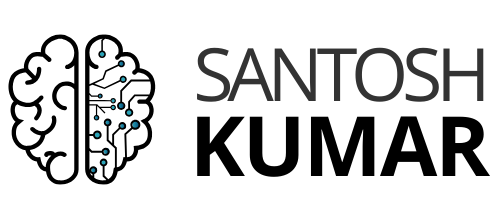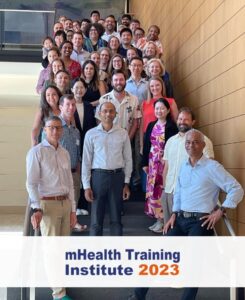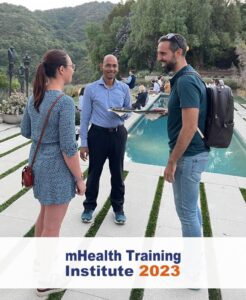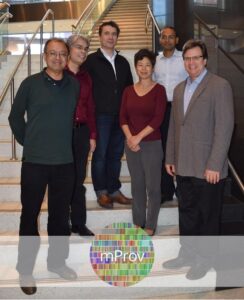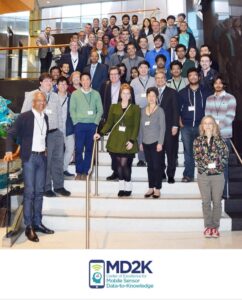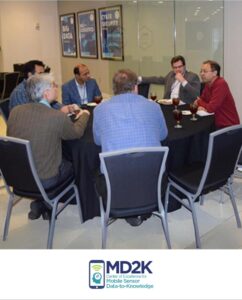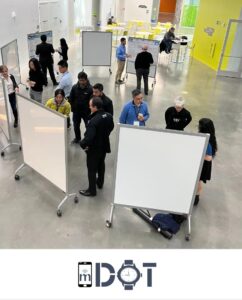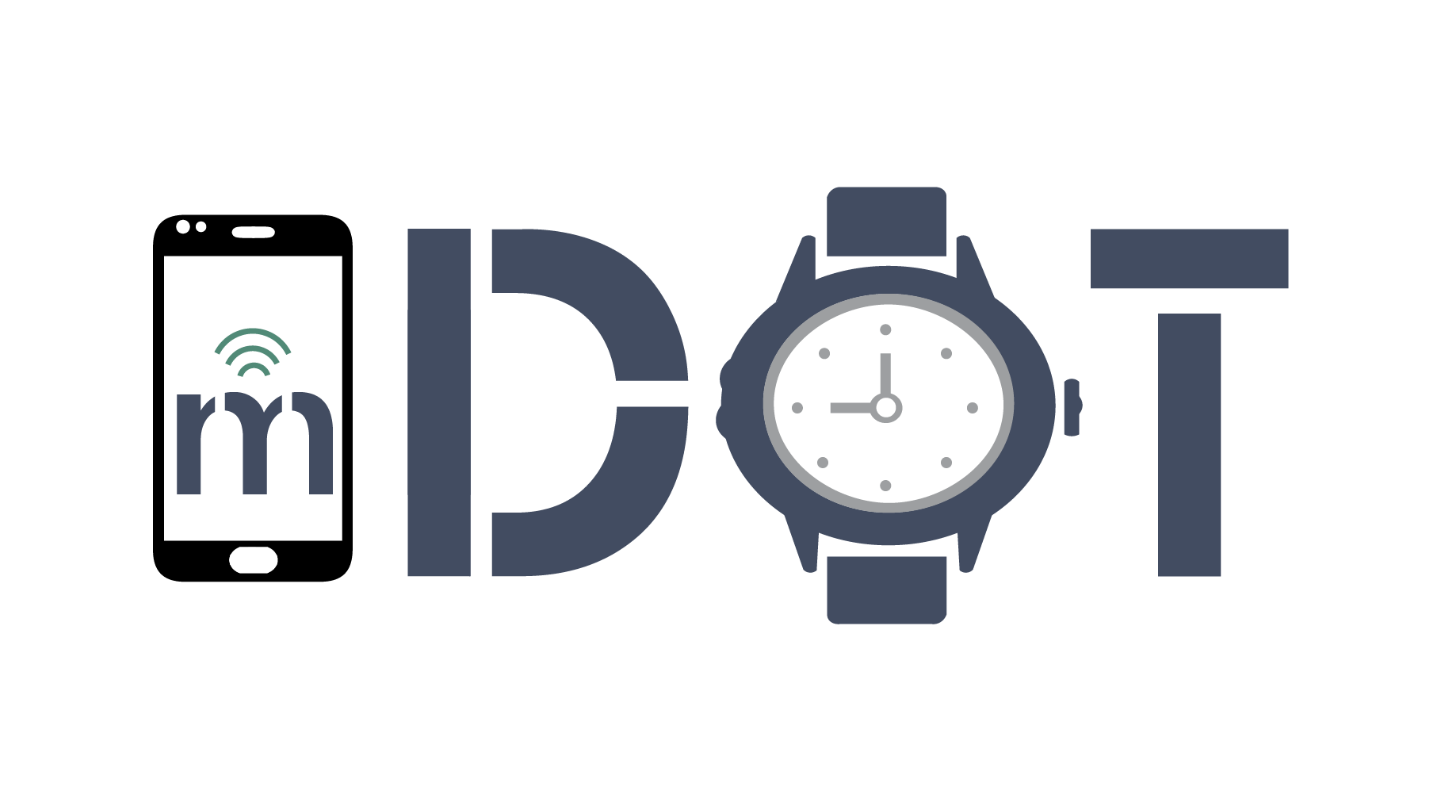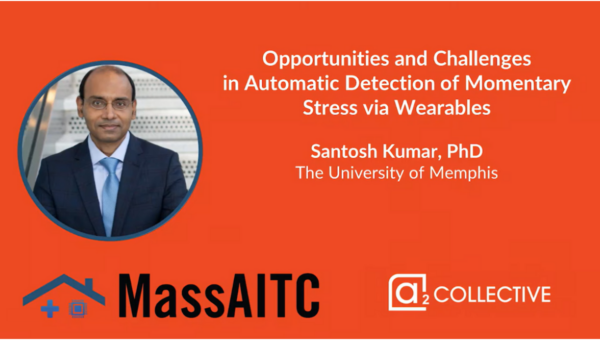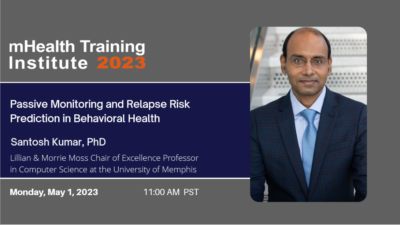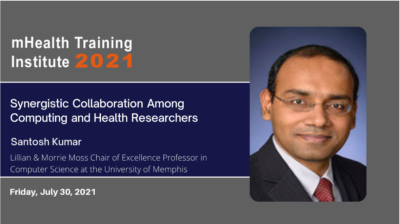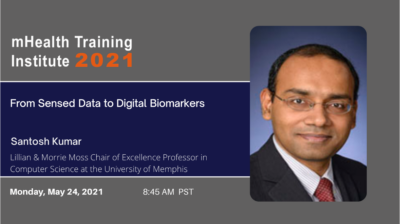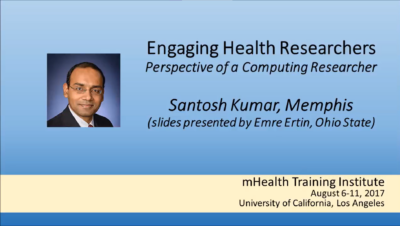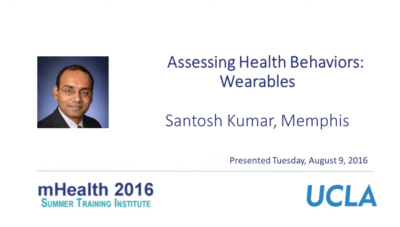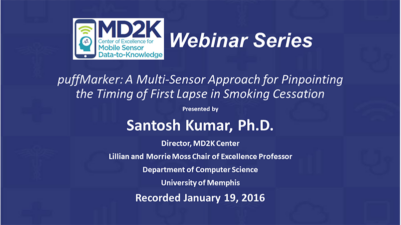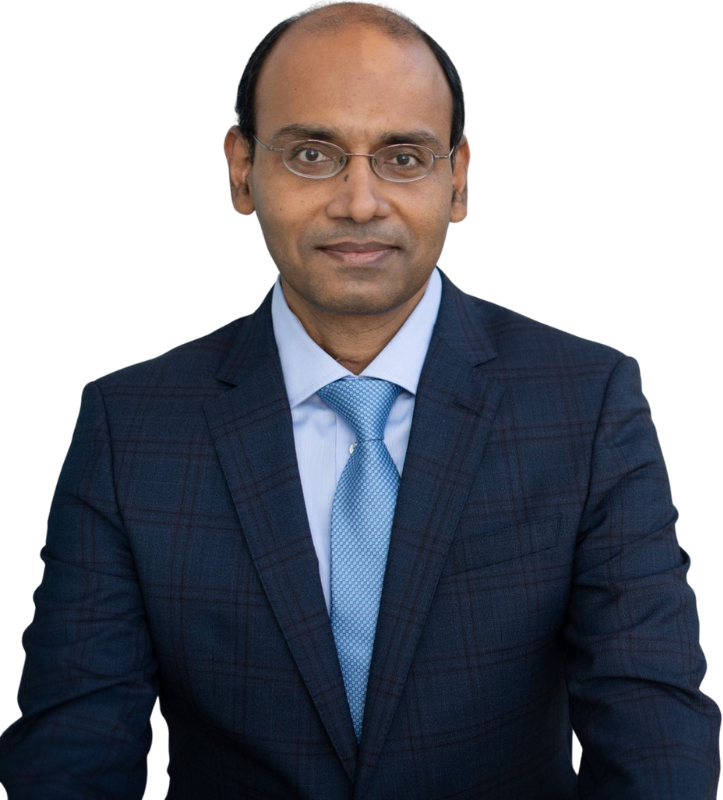
// Transforming Health & Wellness through Wearable AI
Santosh Kumar, PhD
Director, mHealth Center for Discovery, Optimization, & Translation
of Temporally-Precise Interventions (the mDOT Center)
Professor and Lillian & Morrie Moss Chair of Excellence
Department of Computer Science | The University of Memphis
Chief Executive Officer and Co-Founder
CuesHub, PBC
Dr. Santosh Kumar
Dr. Santosh Kumar is internationally recognized for his expertise in wearable AI and is Tennessee’s first state-endowed Chair of Excellence Professor in Computer Science at the University of Memphis.
His current research focuses on developing new AI models to infer health states, daily behaviors, privacy risks, and mitigation approaches.
Dr. Kumar has experience leading and participating in federally-funded multidisciplinary projects worth $50+ million that have involved 30+ investigators from 20+ universities. He currently leads multiple projects including the NIH NIBIB mHealth Center for Discovery, Optimization, and Translation of Temporally-Precise Interventions (the mDOT Center) that provides the methods, tools, and infrastructure for researchers to discover, optimize and deploy temporally-precise mHealth interventions to address growing public health problems.
In 2010, Popular Science magazine named him one of America’s ten most brilliant scientists under the age of 38 (called “Brilliant Ten”).
Dr. Kumar’s graduate students and postdocs are in research, development, and management at IBM Research, Samsung Research, Amazon, Apple, Meta, and Universal Creative.
He served on the advisory boards of NSF Engineering Research Center (ASSIST), NIH PRISMS Program, NIH Center for Technology and Behavioral Health (at Dartmouth), the Department of Computer Science & Engineering at the Ohio State University, and BioTrillion.
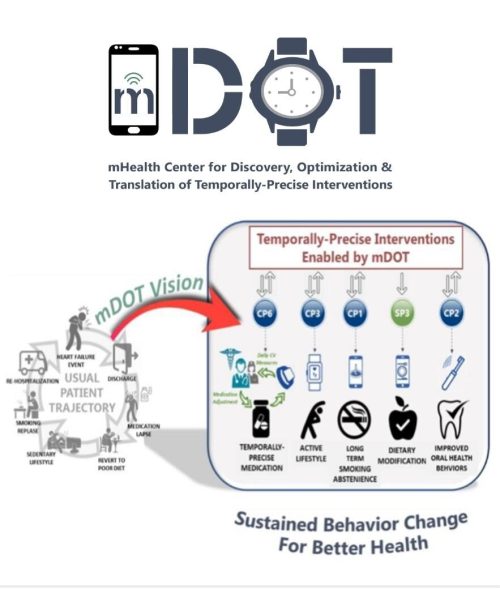
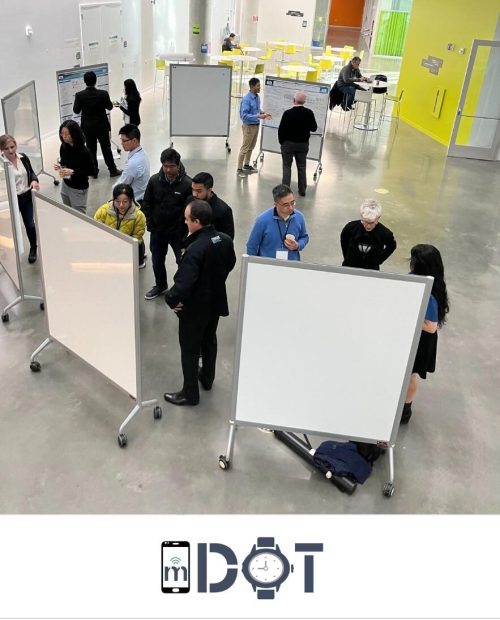
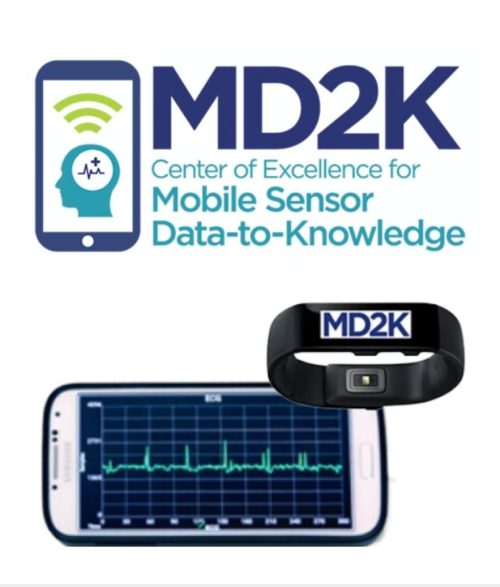
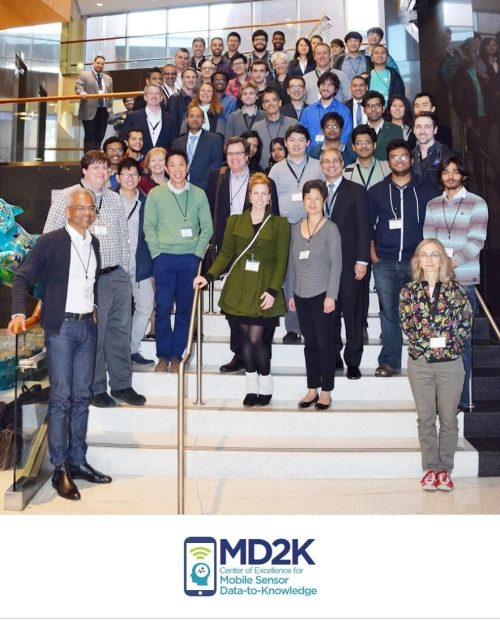
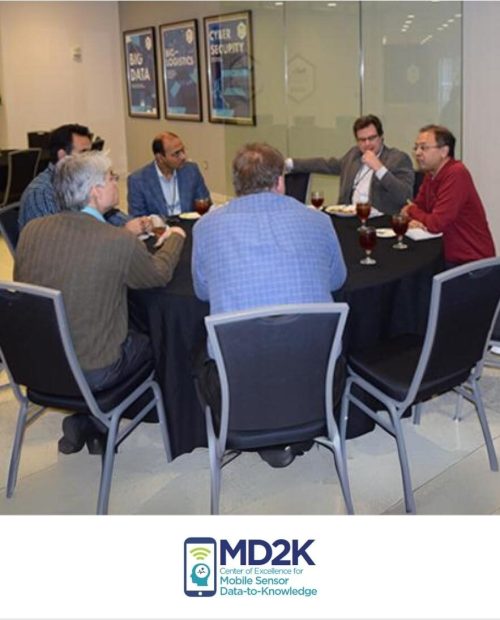
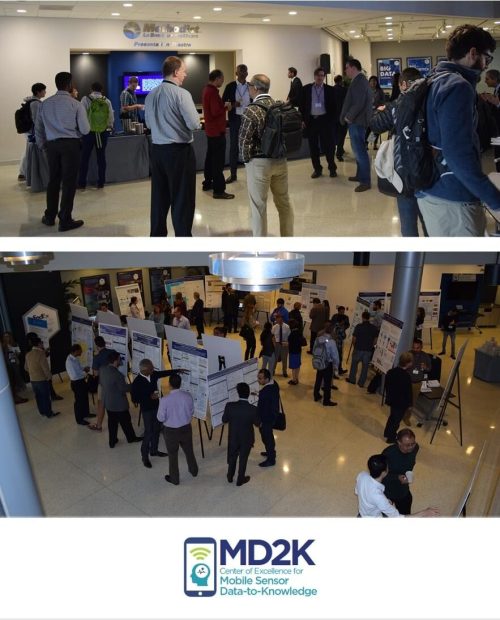
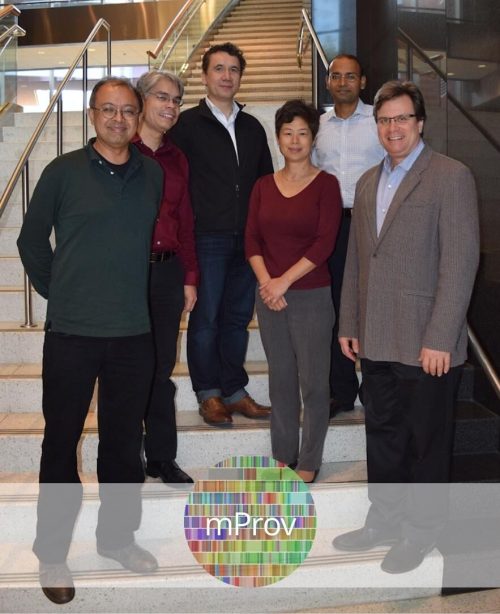
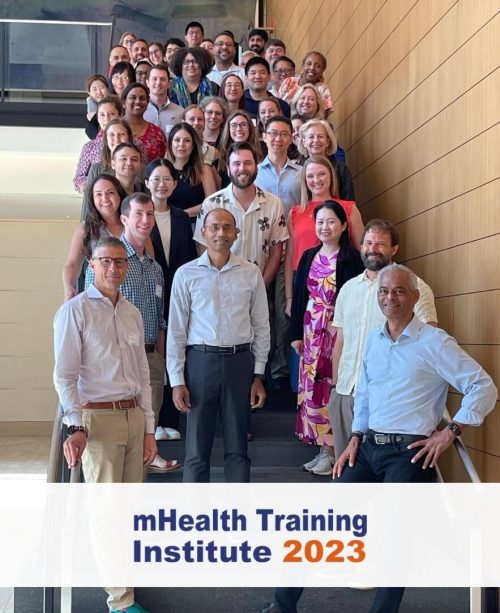
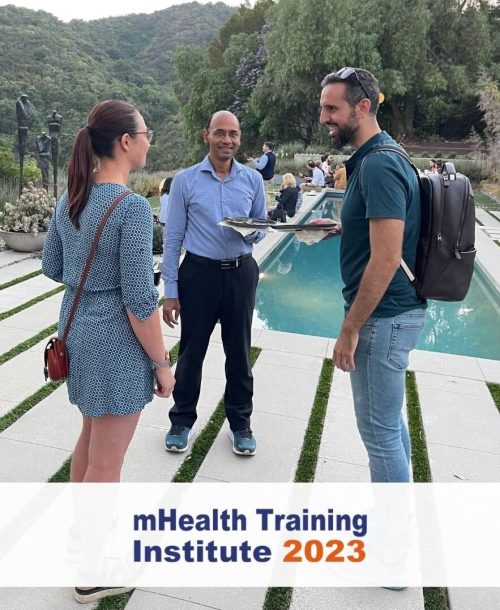
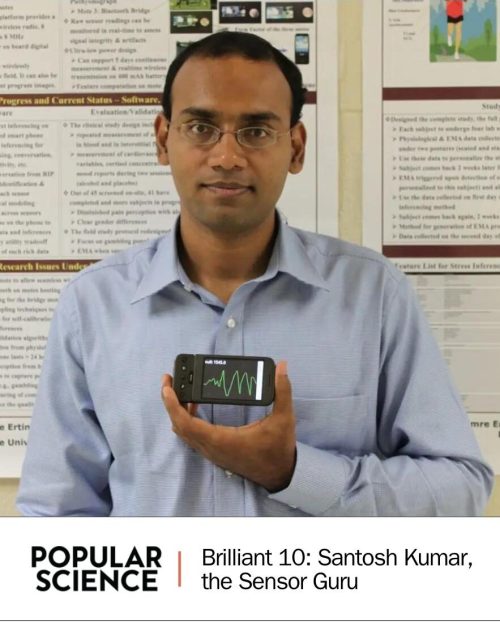
Federally-Funded Multidisciplinary Projects:
Last updated: 6/10/24
Research Talks & Lectures
As a pioneering researcher at the forefront of developing innovative AI models for deducing health states, daily behaviors, privacy risks, and mitigation strategies, Santosh Kumar has delivered presentations to scholars at mHealth Training Institutes and to the broader mHealth community as part of the mDOT Center Webinar Series. His expertise has been recognized globally, earning him invitations to speak at prestigious conferences, federal agencies (including the White House), national meetings, and diverse venues around the world.
Last updated: 6/10/24
Research Focus
Dr. Kumar has been leading mobile health (mHealth) projects since 2007 when his AutoSense project for sensor-based monitoring of stress and addictive behaviors in the field environment was selected in the Genes Environment & Health Initiative (GEI) common fund program of the National Institutes of Health (NIH). He also led an NIH Center of Excellence on Mobile Sensor Data-to-Knowledge (MD2K), funded through the big data-to-knowledge (BD2K) initiative (2014-2021) that developed innovative tools and open-source software to make it easier to collect, integrate, manage, visualize, analyze, and interpret health-related data generated by mobile and wearable sensors. He is currently the Director of the NIH NIBIB mHealth Center for Discovery, Optimization, and Translation of Temporally-Precise Interventions (the mDOT Center) that provides the methods, tools, and infrastructure for researchers to discover, optimize, and deploy temporally-precise mHealth interventions to address growing public health problems.
mDOT’s software platforms are being used in fourteen studies across 12 states to investigate stress, smoking, overeating, heart failure, oral hygiene, work performance, and cocaine use. Hundreds of terabytes of sensor data have been collected by Dr. Kumar and his collaborators and used to discover novel mHealth biomarkers such as stress, conversation, smoking, craving, cocaine use, brushing, and flossing, and sensor-triggered interventions.
In addition to direct experience with leading transdisciplinary mobile sensor research projects, Dr. Kumar has led national efforts to advance the field of mHealth. In 2011, he chaired the national meeting on “mHealth Evidence” organized by NIH and NSF to establish evidence requirements for mobile health, and in 2014 he organized and chaired an NSF-NIH workshop on identifying computing grand challenges in mHealth. He mentors faculty members across the country in mHealth as part of the annual NIH mHealth Summer Institutes.
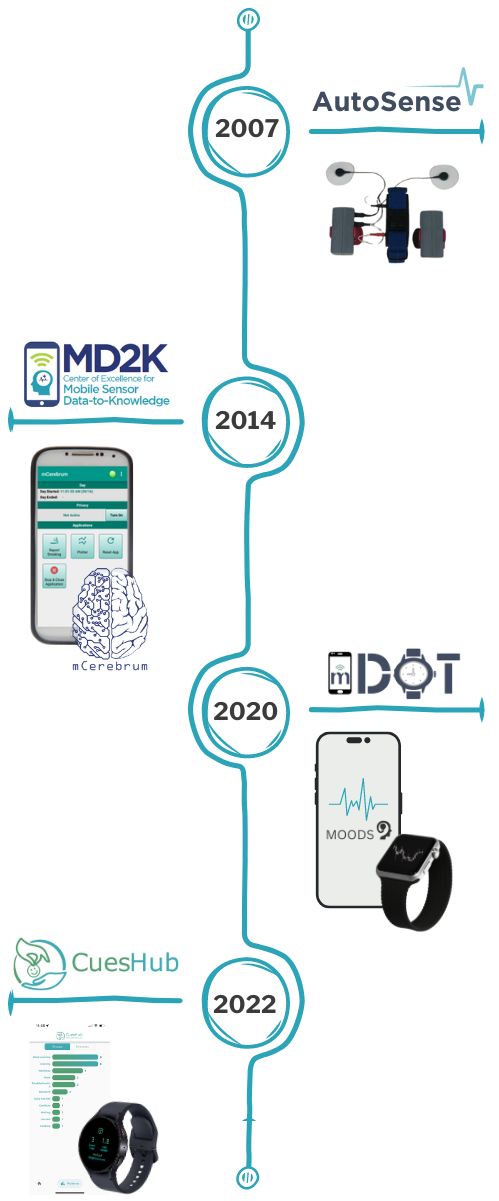
Last updated: 6/10/24
PhD Students, Alumni, & Staff
mDOT Staff
Cheryl Hayes - Business Officer
Shahin Samiei - Associate Director, Research & Studies
Lyndsey Tran - Manager, Training & Communications
Alumni
Sayma Akther (PhD, 2023) - San Jose State University
Azim Ullah (PhD, 2023) - Amazon Web Services
Anand Nandugudi (Data Science Software Engineer, mDOT Center / MD2K)
Nasir Ali (Lead Software / Data Engineer, mDOT Center / MD2K) - Apple
Timothy Hnat (Chief Software Architect, mDOT Center / MD2K) - CuesHub
Soujanya Chatterjee (PhD, 2021) - Amazon
Nazir Saleheen (PhD, 2020) - Google
Rummana Bari (PhD, 2020) - Spire Health
Syed Monowar Hossain (PhD, 2017) - Facebook
Nusrat Nasrin (MS, 2017)
Hillol Sarker (PhD, 2016) - IBM Research
Mahbubur Rahman (PhD, 2016) - Samsung
Amin Ahsan Ali (PhD, 2014) - University of Dhaka
Moushumi Sharmin (Post-doc, 2013-15) - Western Washington University
Andrew Raij (Post-doc, 2009-10) - Universal Creative
Karen Hovsepian (Post-doc, 2011-12) - Amazon
Somnath Mitra (MS, 2012) - eBay
Animikh Ghosh (MS, 2010) - Infosys Labs, India
Maheshbabu Satharla (MS, 2010)
Bhagavathy Krishna (MS., 2009) - Apple
Tim Henry (BS, 2008) - FedEx
Last updated: 6/10/24
Research at mHealth Lab
At mHealth Systems Lab, we strive to make a difference in people’s lives via rigorous interdisciplinary research. Our research involves more than twenty faculty members from over ten universities. Our collaborators span a variety of disciplines (e.g., Computer Science, Electrical Engineering, Mathematics, Statistics, Psychology, Behavioral Science, Cardiology, Physiology, Public Health, etc.), making our projects highly transdisciplinary.
mHealth Systems Lab students have access to many large-scale mobile sensor datasets. There have been a wide range of deploymentsusing data generated by MD2K’s software platforms over the last 10+ years. With over 2,200 users, these platforms have generated over 4.7 trillion data points through over 106,000 person-days, and these numbers are growing every day. These datasets provide invaluable aid to new, current, and prospective mHealth researchers.
Users
Data Points
Person-Days
Last Updated: 6/10/24
